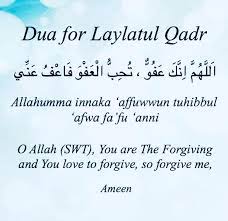Laylat Al Qadr: The Night of Power

What Is Laylat Al Qadr?
Laylat Al Qadr is considered the holiest night of the year for Muslims, and is traditionally celebrated on the 27th day of Ramadan. It is known as the “Night of Power,” and commemorates the night that the Quran was first revealed to the Prophet Muhammad SAW. The Prophet Muhammad SAW did not mention exactly when the Night of Power would be, although most scholars believe it falls on one of the odd-numbered nights of the final ten days of Ramadan, such as the 19th, 21st, 23rd, 25th, or 27th days of Ramadan. It is most widely believed to fall on the 27th day of Ramadan.
The Quran says in Surat Al-Qadr,
We have indeed revealed this (Message) in the Night of Power:
And what will explain to thee what the night of power is?
The Night of Power is better than a thousand months.
Therein come down the angels and the Spirit by Allah’s permission, on every errand:
Peace!…This until the rise of morn!
The importance of this night is also mentioned in hadith, which are the sayings of the Prophet Muhammad as remembered by his companions:
Whoever establishes the prayers on the night of Qadr out of sincere faith and hoping to attain Allah’s rewards (not to show off) then all his past sins will be forgiven. Hadith, Bukhari Vol 1, Book 2:34.
Here are some things that we can do before, on, and after The Night of Power
1. Take some time off for Allah
We take a break from our jobs for almost everything in life. Why not this time to focus on worshiping and thanking our Creator. If this is not possible at least take a few days off if you can. This will also enable you to do Itikaf.
2. Do Itikaf

It was a practice of the Prophet to spend the last ten days and nights of Ramadan in the masjid for Itikaf. Those in Itikaf stay in the masjid all this time, performing various forms of zikr (the remembrance of Allah), like doing extra Salat, recitation and study of the Quran. They do not go outside the masjid except in case of emergencies, therefore, they sleep in the masjid. Their families or the masjid administration takes care of their food needs. Itikaf of a shorter period of time, like one night, a day or a couple of days is encouraged as well. Itikaf of 3 days starts from the 27th night of Ramadan. The pandemic may interfere with any gatherings at the masjid, so check with your local masjid.
3. Make this special Dua
Aisha, may Allah be pleased with her, said: I asked the Messenger of Allah: ‘O Messenger of Allah, if I know what night is the night of Qadr, what should I say during it?’ He said: ‘Say: O Allah, You are pardoning and You love to pardon, so pardon me.’ “(Ahmad, Ibn Majah, and Tirmidhi).
4. Recite the Quran and Reflect on it’s Meaning
Perhaps you can choose Surahs or passages from the Quran which you have heard in Tarawih this past Ramadan to recite. If you attend a class where the recitation of the Quran is taught, this is a great time to put your knowledge into practice. We should always take any opportunity that we have to read the Quran and reflect on it’s meaning. Choose your favorite Surahs and read their translation. Then think deeply about their meaning and how it affects you on a personal level.
5. Eliminate Your Sins

Abu Huraira narrated that the Messenger said: Whoever stands (in prayer) in Laylatul Qadr while nourishing his faith with self-evaluation, expecting reward from Allah, will have all of his previous sins forgiven. [Bukhari and Muslim).
Try to make your prayers longer, deeper and more meaningful. If you are familiar with longer Surahs, read the translation and explanation and then pray reciting these Surahs, while reflecting on the meaning while you pray. Even if you are only familiar with the shorter Surahs, read the translation and explanation beforehand, and then pray reflecting on the message of the Surahs. This is a good way to develop the habit of concentration, even in regular prayers, where many of us tend to be easily distracted.
6. Make A List of Personal Duas
Ask yourself what you really want from Allah. Make a list of each and everything, no matter how small or how big it is. Allah loves to hear from us. Once this list is ready, you can do three things:
- Ask Allah to give you those things
- Think about what actions you have taken to get those things
- Develop a work plan to get those things in future.
7. Evaluate yourself.
Ask yourself those questions that need to be asked. Do an evaluation of where you are and where you are going. Let this evaluation lead you to feel happiness for the good you have done and remorse for the bad you have done. Feeling remorse should make it easier to seek Allah’s sincere forgiveness when making dua.
8. Make sincere Duas
One of the best times to do this is during the last part of the 27th night of Ramadan.
Abu Huraira, may Allah be pleased with him, related that the Prophet said: When the last one-third of the night remains, our Lord, the Glorious One descends towards the heaven of the earth and proclaims: Who is that who supplicates for Me, and I grant his supplication? Who is that who begs Me for anything and I grant it to him? And who is that who seeks My forgiveness, and I forgive him? (Bukhari, Muslim).
That means for instance, waking up one hour before Suhoor time to ask Allah for anything and everything you want that is Halal. This can be done using the Duas of the Sunnah, but also Dua in your own language, with sincerity and conviction.
9. Have Iftar with the family
With many of us having to continue to work, chances are we have missed out on a lot of family time. Now is the time, during these last few days that we should make the maximum effort to spend with our family.
10. Take the family to Tarawih
Have you or your spouse and kids missed Tarawih most of Ramadan because of work or other commitments? If so, do all of yourselves a favor and bring everyone for Tarawih in these last ten nights.
11. Read a Book about The Prophet SAW
Read about the Prophet’s life, which can increase your love for him and Islam by seeing how much he struggled for Allah’s sake. It may inspire you to push yourself even harder during these last ten nights. This community is built on sacrifice.
12. Make a Plan for the Next Year
Once you’ve done a self-evaluation, you can plan on where you want to go, at least in the next 12 months. Laylatul Qadr is a great night to be thinking about this (without taking away from your worship), since you’ll Insha Allah, be in a more contemplative state. You may choose to dedicate one night of power for evaluation and one night for planning for the next year.
13. Make a to do list for the Night of Power
Make a to do checklist for each Night of Power. This should define how you would like your night, the one better than a thousand months, to be used. Pick things from this list and define the sequence you would like to do things in. This will help you avoid wasting your time in unproductive chats which are common in the festive atmosphere of Masjids at the Night of Power.
May all of our Duas be accepted and answered on this special night. Ameen InshaAllah
Sister Rebecca is a SAHM living in Houston Texas. Married for 13 years with two children, and a revert since 2014, her hobbies include cooking, reading, and spending time with family.





